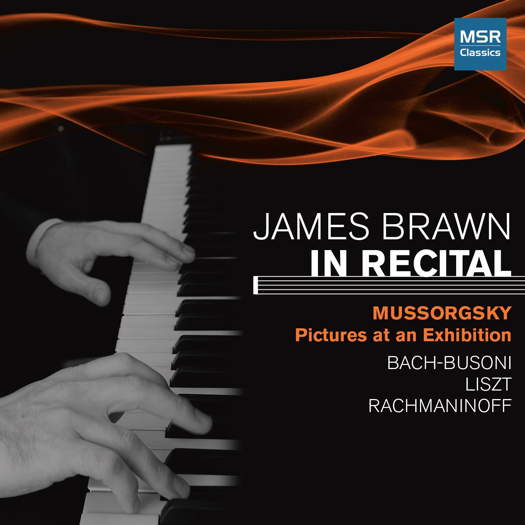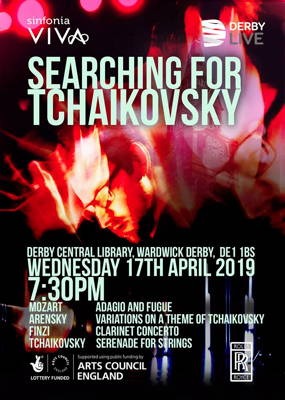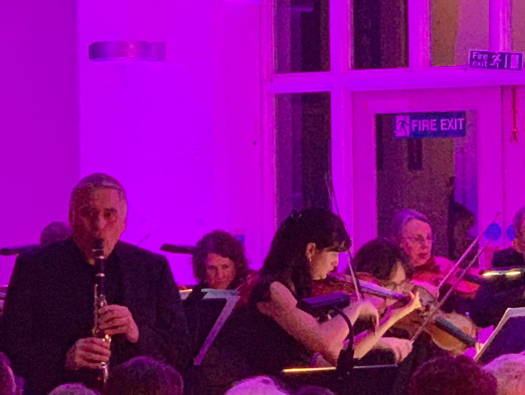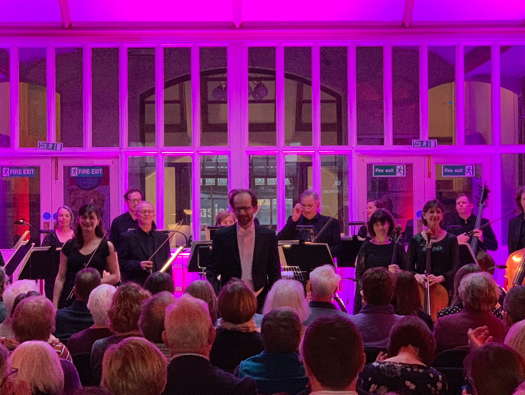- Jabez Hogsbarrow
- Roman Catholicism
- Julia Gomelskaya
- Colin Davis
- Philip Ledger
- Roberto Sierra
- Teresa Carreno Cultural Complex
- Caramoor Festival
 DISCUSSION: John Dante Prevedini leads a discussion about Composers, individuals or collective?, including contributions from David Arditti, Halida Dinova, Robert McCarney and Jane Stanley.
DISCUSSION: John Dante Prevedini leads a discussion about Composers, individuals or collective?, including contributions from David Arditti, Halida Dinova, Robert McCarney and Jane Stanley.
 SPONSORED: CD Spotlight. True Command - James Brawn plays Bach, Liszt, Musorgsky and Rachmaninov - recommended by Andrew Schartmann.
SPONSORED: CD Spotlight. True Command - James Brawn plays Bach, Liszt, Musorgsky and Rachmaninov - recommended by Andrew Schartmann.
All sponsored features >>

Slavic Melancholy
Chris Swann, the strings of Sinfonia Viva
and Frank Zielhorst perform Mozart, Arensky,
Finzi and Tchaikovsky in a new performance space,
reviewed by MIKE WHEELER
Derby might just have acquired a handy new small concert venue. After the staff and contents moved to new premises last year, the 1879 Central Library building has been available for hire; this was its first outing as a performance space - Derby, UK, 17 April 2019. There are issues to be considered, not least restrictions on the size of audience, but it has definite possibilities.

Flyer for Sinfonia Viva's Searching for Tchaikovsky concert at Derby Central Library
Those possibilities were given an airing when the strings of Sinfonia Viva and conductor Frank Zielhorst presented the second of their 'Searching for...' concerts. After putting Mozart in the spotlight in February, they turned to Tchaikovsky, whose devotion to Mozart provided an obvious link. The orchestra made a big vibrant sound in Mozart's Adagio and Fugue, K 546, helped by the violin and viola sections standing, as they did throughout. While the result was a bit too hefty for Mozart, certainly in this acoustic, it made a visceral impact. As the evening went on, the players got the measure of the space and adjusted their projection accordingly.
Arensky's Variations on a Theme of Tchaikovsky is a transcription of the middle movement - based on one of Tchaikovsky's Children's Songs, Op 54 - from his String Quartet in A minor, Op 35. There was some nimble playing in the quick variations, No 2, No 4, a playful scherzo, and the brisk, vigorous sixth. No 5 was deeply poignant, as was No 7, which includes what sounds like a fleeting reference to the Andante Cantabile from Tchaikovsky's own String Quartet No 1. The ending, based on an Orthodox funeral chant, was, in Viva's hands, profoundly moving.
I'm not aware of any direct connection between Tchaikovsky and Gerald Finzi, but any excuse to hear his Clarinet Concerto is fine by me. Viva made something nicely gruff of the strident opening gesture, to which the orchestra's principal clarinettist, Chris Swann, made a perfect good-humoured reply. The withdrawn second movement produced playing of quiet, sorrowful intensity; soloist and orchestra made the climax a palpable release of tension. The finale went at a brisk lick, but behind the relaxed, easy-going exterior, the performance suggested a degree of gritted-teeth determination. There's a lot more angst in Finzi than he's often given credit for. Don't be fooled by the pipe-smoking, tweedy image.

Chris Swann playing Finzi's Clarinet Concerto at Derby Central Library with members of Sinfonia Viva. Photo © 2019 Shain Bali?
Tchaikovsky himself was represented by his Serenade for Strings. After a broad statement of the introduction, the performance settled into a neat, elegant account of the quick music, in playing full of bounce and spring. The second movement Waltz had a genuinely balletic feel.

Frank Zielhorst (centre) and the strings of Sinfonia Viva acknowledging applause from the audience at Derby Central Library. Photo © 2019 Shain Bali?
Putting his baton down for the third movement, Frank Zielhorst drew playing that highlighted both its song-like quality and its Slavic melancholy, allowing it to lead gently into the start of the finale, which had an attractively tentative air. The vigorous cut and thrust of the playing in the main part of the movement was summed up in one of the most exuberant account of the final pages I think I've heard.
Copyright © 28 April 2019
Mike Wheeler,
Derby UK


